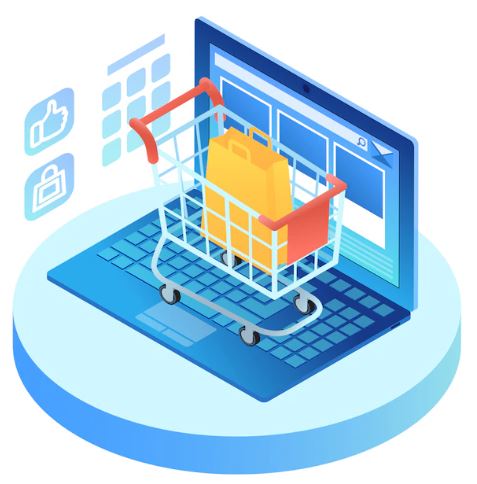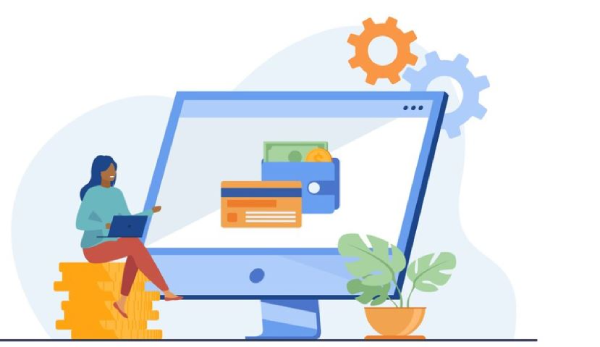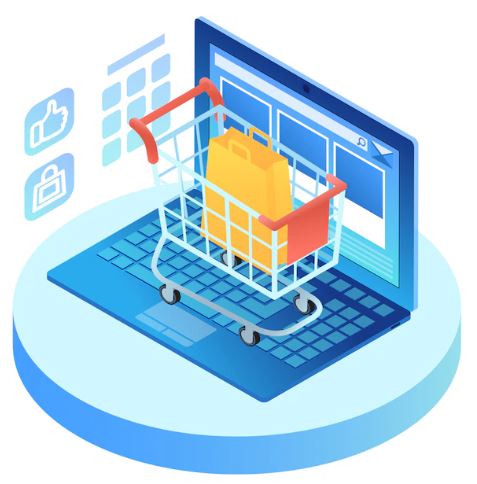Introduction: In the vast space of online commerce, merchants embark on a complex journey to conquer new frontiers and expand their digital empires. The key to their success lies in harnessing the power of payment orchestration platforms – advanced technologies that facilitate online transactions across multiple digital channels.
Join us as we embark on a thrilling adventure, exploring the many reasons why payment orchestration is the ultimate weapon for online merchants seeking domination in the digital space.
What is payment orchestration?
A payment orchestration platform is a software solution that enables merchants to manage multiple payment methods, gateways, and providers through a single interface. It simplifies the payment process by routing transactions to the best-suited provider, and optimizing costs, performance, and security. A payment orchestration platform also offers features such as fraud prevention, reporting, analytics, and compliance.
The Price of Fragmented Payment Processes
Venturing into uncharted territories requires efficiency and agility. Payment orchestration platforms serve as the warp drive for merchants, consolidating the complex web of payment methods and gateways into a unified interface. With a single integration, merchants can transcend the barriers of channels where users are browsing, accelerating their payment operations and propelling their businesses toward success.
In the ever-expanding universe of online commerce, the cost of inefficiency and fragmented payment operations is steep. For online merchants, navigating the complexities of multiple payment methods and gateways can be a black hole, sucking away precious time, resources, and revenue. However, payment orchestration platforms offer a streamlined solution that tackles multiple needs.

1. The Lost Expeditionary Hours: When integrating multiple individual payment gateways, merchants use up valuable development and maintenance hours as they set up a complex, stitched-together system which might not be so reliable. The cost of not opting for a payment orchestration platform is high, as using alternative combined solutions uses up a lot of valuable business resources.
2. The Currency Conundrum: Each market is characterized by specific currencies, and merchants must adapt to the peculiarities of each region and its coin. Without a payment orchestration system, merchants find themselves entangled in a web of conversion calculations and manual adjustments. The overhead of dealing with currencies in different markets drains their resources and creates friction in the customer journey. However, payment orchestration platforms easily automate such exchange rates and conversions, enabling merchants to display prices and process transactions in the customer’s preferred currency.
3. The Fractured Checkout Experience: Imagine a user navigating the final stages of their purchase journey, ready to embark on a new adventure with their chosen merchant. Suddenly, they encounter a glitch in the flow – a fractured and cumbersome checkout experience. Multiple payment methods and gateways scatter their path, demanding separate logins, endless redirects, and convoluted authentication processes, which may put off an eager prospect. However, with payment orchestration platforms, merchants can provide a unified and seamless checkout experience, and ensure customers complete their transactions with ease. This streamlined process minimizes cart abandonment rates and maximizes conversion rates, and may even boost brand loyalty.
4. The Dark Vortex of Maintenance Costs: Integrating and maintaining multiple payment gateways individually is an arduous endeavor that can drain resources fast. Each gateway requires its own set of updates, compatibility checks, and support systems. The dark vortex of maintenance costs threatens to consume the merchant’s hard-earned profits. Enter payment orchestration platforms: centralized systems whose benefits include reduced maintenance costs, lower overhead, and more resources for sellers to invest in their business development.

A Blend of Payment Options
To succeed in this ever-evolving landscape, online merchants must possess the power to adapt and accommodate the diverse payment preferences of their customers. Here, payment orchestration platforms offer the unparalleled benefits of flexibility and payment method aggregation, propelling them to the forefront of the cosmic commerce revolution.
1. Flexibility and Payment Method Aggregation: Customers from different markets, backgrounds, and demographic groups each have unique payment preferences. Integrating individual payment methods and gateways becomes an unwieldy task for merchants, fragmenting the customer experience and limiting the merchant’s reach. However, payment orchestration platforms provide a unified interface where various payment methods can be aggregated. From credit cards to digital wallets, from cryptocurrencies to alternative payment options, merchants can effortlessly offer a variety of choices.
2. Shopper Convenience, Seamless Experiences: In the age of digital commerce, convenience reigns supreme. Payment orchestration platforms empower merchants to provide frictionless journeys, letting customers enjoy a unified and intuitive interface, where a single click transports them to the payment method of their choice. Whether customers prefer the simplicity of a one-click purchase or the security of biometric authentication, merchants equipped with payment orchestration platforms can offer it all.
3. Unlocking Multiple Revenue Streams: In the infinite expanse of the digital universe, revenue streams are as abundant as the stars themselves. Without the ability to aggregate and offer these localized payment methods, the merchant’s new business potential remains untapped. Using payment orchestration, however, merchants are much better able to seize opportunities to expand their reach to new territories or new socio-economic groups.
Improved Conversion Rates
In the vast expanse of digital commerce, the key to success lies in unlocking the power of improved conversion rates. Payment orchestration platforms facilitate this objective.
1. The Frictionless Checkout: Shoppers in different regions or industries have diverse preferences for how a cart experience should unfold. Some value the security of multi-step flows, while others would much rather go through an express, one-step checkout. A payment platform optimized for growth gives merchants the flexibility to choose the best-fit checkout experience that addresses the expectations of each group, without having to allocate additional resources and dev hours in the process.
2. The Power of Personalization: Payment orchestration platforms empower merchants with the capability of personalization, allowing them to tailor the payment experience to each customer’s preferences. By remembering previous payment methods, offering customized recommendations, and providing adapted promotions, merchants enhance the user experience, foster loyalty, and fuel revenue growth.

Enhanced Security and Fraud Protection – Safeguarding the Bottom Line
Digital commerce is not without its risks and faces threats in the form of fraudsters and cybercriminals. To shield their business and user base against these, online merchants must harness the power of enhanced security and fraud protection provided by payment orchestration platforms.
1. The real, costly threat of Payment Fraud: When lacking a defensive shield against payment fraud, merchants become vulnerable to different threats like unauthorized transactions or chargebacks, whose costs compound and chip away at business profits. By integrating advanced fraud detection tools, such as AI-driven algorithms and real-time transaction monitoring, merchants fortify their defenses and inspire more trust with legitimate shoppers.
2. The potential threats to Customer Trust: Customers seek the assurance that their personal and financial information is safeguarded whenever transacting online. Payment orchestration platforms employ encryption technologies and compliance standards to protect customer data, thus succeeding in preserving the trust of their customers.
3. The Imperative of Compliance: Compliance is the guiding principle that ensures harmony and adherence to financial regulations. Payment orchestration platforms offer merchants the tools to navigate the complex landscape of regulations and data protection laws, automating processes, and providing robust auditing and reporting capabilities. By embracing compliance, merchants safeguard themselves from penalties, legal complications, and the potential harm of reputational damage.
Business Intelligence and Reporting
Mere intuition and guesswork are inadequate when tackling digital markets, especially when selling outside of your home market. To navigate the intricate web of commerce, merchants must harness the power of business intelligence and reporting offered by payment orchestration platforms. Without this insight, they risk stumbling blindly, missing opportunities, and falling short of their true potential.
1. The Importance of Data: Digital commerce is teeming with data – transaction volumes, customer behavior, sales trends – all waiting to be unraveled. Payment orchestration platforms serve in capturing and drawing insights from this wealth of data. By consolidating data from various sources, these platforms provide merchants with comprehensive reports, visualizations, and analytics tools, empowering them to identify patterns and lucrative opportunities, and optimize their strategies for maximum impact.
2. Insights to Guide Strategic Alignment: Success hinges on strategic alignment and adaptation. Business intelligence and reporting capabilities offered by payment orchestration platforms guide merchants toward this goal. By analyzing customer behavior, identifying trends, and monitoring performance metrics, merchants gain insights that can help them identify emerging markets, optimize pricing strategies, and tailor their product offerings to align with demand.
3. The Quest for Continuous Improvement: To remain competitive and adapt to the evolving landscape, merchants must embrace a culture of continuous improvement. Business intelligence and reporting capabilities offered by payment orchestration platforms are the engine that drives this forward. By monitoring key performance indicators, conducting A/B testing, and analyzing customer feedback, merchants can identify areas of improvement and implement data-driven enhancements. They can optimize the checkout experience, fine-tune promotional campaigns, and enhance customer engagement based on real-time insights.

In a competitive, crowded market, the success of merchants rests on their ability to harness the power of payment orchestration platforms, as differentiators that upgrade the performance of their operations and the customer experience. These platforms streamline the path of sellers toward revenue maximization, up-to-date security, strategic alignment, and data-driven decision-making.
The 2Checkout (now Verifone) platform is an all-in-one solution that addresses all these needs, with simple-to-use, out-of-the-box capabilities that support online sales objectives, in any target market and for any target audience. Sign up for free today to see the platform in action.
- SEO Powered Content & PR Distribution. Get Amplified Today.
- PlatoData.Network Vertical Generative Ai. Empower Yourself. Access Here.
- PlatoAiStream. Web3 Intelligence. Knowledge Amplified. Access Here.
- PlatoESG. Carbon, CleanTech, Energy, Environment, Solar, Waste Management. Access Here.
- PlatoHealth. Biotech and Clinical Trials Intelligence. Access Here.
- Source: https://blog.2checkout.com/payment-orchestration-for-ecommerce-success/
- :is
- :not
- :where
- $UP
- 32
- a
- Abandonment
- ability
- Able
- abundant
- accelerating
- accommodate
- across
- Action
- adapt
- adaptation
- adapted
- Additional
- addresses
- adherence
- adjustments
- advanced
- Adventure
- against
- age
- aggregate
- aggregation
- align
- alignment
- All
- all-in-one
- allocate
- Allowing
- also
- alternative
- an
- analytics
- analyzing
- and
- any
- ARE
- areas
- AS
- assurance
- At
- auditing
- Authentication
- automate
- automating
- AVG
- away
- backgrounds
- barriers
- base
- based
- BE
- become
- becomes
- behavior
- benefits
- Better
- biometric
- Black
- Black Hole
- Blend
- blindly
- boost
- Bottom
- brand
- brand loyalty
- Browsing
- business
- business development
- business intelligence
- businesses
- by
- calculations
- Campaigns
- CAN
- capabilities
- capability
- Capturing
- centralized
- centralized systems
- channels
- characterized
- Checkout
- Checks
- chip
- choice
- choices
- Choose
- chosen
- click
- Coin
- combined
- Commerce
- compatibility
- competitive
- complete
- complex
- complexities
- compliance
- Compound
- comprehensive
- conducting
- consolidating
- consume
- continuous
- convenience
- Conversion
- Cost
- costly
- Costs
- creates
- crowded
- Culture
- cumbersome
- currencies
- Currency
- customer
- customer behavior
- Customer Engagement
- customer experience
- Customer Journey
- Customers
- customized
- cybercriminals
- damage
- Dark
- data
- data protection
- data-driven
- dealing
- Decision Making
- defensive
- Demand
- demanding
- demographic
- Detection
- Dev
- Development
- different
- digital
- digital commerce
- digital space
- Display
- diverse
- drain
- drawing
- drive
- drives
- each
- eager
- ease
- easily
- ecommerce
- efficiency
- effortlessly
- embark
- embrace
- embracing
- empower
- empowering
- enables
- encounter
- encryption
- endeavor
- Endless
- engagement
- Engine
- enhance
- enhanced
- enhancements
- enjoy
- ensure
- ensures
- Enter
- equipped
- especially
- Even
- evolving
- Expand
- expectations
- experience
- Exploring
- express
- faces
- facilitate
- Falling
- falling short
- FAST
- Features
- final
- final stages
- financial
- financial information
- Find
- Flexibility
- Flows
- For
- forefront
- form
- fortify
- Forward
- Foster
- fragmented
- fraud
- fraud detection
- fraud protection
- Free
- friction
- frictionless
- from
- Frontiers
- Fuel
- Gain
- gateway
- gateways
- gives
- Go
- goal
- Group
- Group’s
- Growth
- guide
- Harmony
- harness
- Harnessing
- Have
- having
- help
- here
- High
- hinges
- Hole
- Home
- HOURS
- How
- However
- HTTPS
- identify
- identifying
- imagine
- Impact
- imperative
- implement
- importance
- improved
- improvement
- in
- include
- Indicators
- individual
- Individually
- industries
- inefficiency
- information
- insight
- insights
- inspire
- Integrating
- integration
- Intelligence
- Interface
- into
- intricate
- intuition
- intuitive
- Invest
- IT
- ITS
- journey
- jpg
- Key
- landscape
- legitimate
- letting
- lies
- like
- limiting
- Lot
- Loyalty
- lucrative
- maintaining
- maintenance
- manage
- manual
- many
- Market
- Markets
- max-width
- maximum
- May..
- Merchant
- Merchants
- method
- methods
- Metrics
- might
- minimizes
- missing
- monitoring
- more
- much
- multiple
- must
- Navigate
- navigating
- needs
- New
- now
- objective
- objectives
- of
- off
- offer
- offered
- offering
- Offerings
- Offers
- on
- online
- online merchants
- online sales
- online transactions
- Operations
- opportunities
- Optimize
- optimized
- optimizing
- opting
- or
- orchestration
- Others
- outside
- own
- path
- patterns
- Paving
- payment
- payment method
- payment methods
- performance
- personal
- platform
- Platforms
- plato
- Plato Data Intelligence
- PlatoData
- possess
- potential
- power
- Precious
- prefer
- preferences
- preferred
- preserving
- previous
- price
- pricing
- principle
- process
- processes
- profits
- promotional
- Promotions
- propelling
- prospect
- protection
- provide
- provided
- provider
- providers
- providing
- purchase
- put
- quest
- Rates
- rather
- rating
- reach
- ready
- real
- real-time
- reasons
- recommendations
- region
- regions
- regulations
- reliable
- remain
- remains
- remembering
- Reporting
- requires
- Resources
- revenue
- revenue growth
- Revolution
- Risk
- risks
- robust
- routing
- safeguarded
- safeguarding
- sales
- score
- seamless
- security
- see
- Seek
- seeking
- Sellers
- Selling
- separate
- serve
- set
- Shield
- Shoppers
- Short
- should
- sign
- simplicity
- single
- So
- Software
- software solution
- solution
- Solutions
- some
- Sources
- Space
- specific
- stages
- standards
- Stars
- Strategic
- strategies
- streamline
- streamlined
- streams
- stumbling
- succeed
- success
- such
- support
- Support Systems
- Supreme
- system
- Systems
- Tackles
- tackling
- Target
- Task
- Technologies
- territories
- that
- The
- the security
- their
- Them
- themselves
- These
- they
- this
- threat
- threatens
- threats
- thrilling
- Through
- Thus
- time
- to
- tools
- toward
- transacting
- transaction
- Transactions
- Trends
- true
- Trust
- ultimate
- unauthorized
- uncharted
- unified
- Universe
- unleashing
- unlocking
- unparalleled
- untapped
- up-to-date
- Updates
- upgrade
- us
- use
- User
- User Experience
- users
- uses
- using
- Valuable
- value
- variety
- various
- Vast
- volumes
- votes
- Vulnerable
- Waiting
- Way..
- we
- Wealth
- web
- when
- whenever
- whether
- which
- while
- whose
- why
- with
- without
- would
- Your
- zephyrnet












